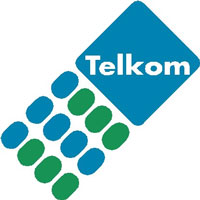Telecomms policy vacuum costing SA dearly
SA's lack of a clear telecom policy is costing it dearly. Local companies and consumers have long complained that the high cost of telecommunications is a burden to business here.

The gripes of local business are now a factor in global organisations' assessment of the SA business landscape.
International Monetary Fund (IMF) assistant director Abebe Selassie listed high telecom prices as an impediment to growth before parliament's Standing Committee on Finance earlier this month.
This criticism follows the World Bank's Global Information Technology Report 2010-2011 rating most African countries poorly on its networked readiness index. The index ranks countries on their ability to use technology to better the lives of their citizens.
Though SA came in at 61st out of 138 economies, the report laments the country's "very high access costs".
GSMA also concerned
The IMF and the World Bank are not the only global institutions concerned about the lack of a coherent strategy when it comes to SA telecom policy. The GSM Association (GSMA) - a worldwide group of cellular operators and equipment makers - is now prodding government and the telecom regulator, the Independent Communications Authority of SA (Icasa) towards making the necessary changes.
One of the key things it wants them to address is the allocation of radio spectrum to operators, says the association's director of spectrum policy for Africa and the Middle East, Peter Lyons.
Radio frequency is the lifeblood of mobile operators. Existing players need access to new batches of spectrum to offer new services, and new entrants need radio frequency to start operating. The problem for operators is that the availability of "useful spectrum" - radio waves that allow for high-speed Internet access and can travel through walls and over vast distances - is limited and the process for its allocation has come to a halt. The previous communications minister, Roy Padayachie, used a technicality to stop Icasa from auctioning off a block of this spectrum. (See FM Features October 14.)
"There is an obstacle sitting in the middle of the road and it is spectrum," Lyons says.

The cost of such a delay could be high.
The Dubai-based Lyons is keen to find a way forward. He now travels to SA every few weeks to meet decision makers in government and Icasa to remove the logjam around radio frequency.
another problem
Lyons talks with respect about the officials in the communications department and Icasa but says the absence of a telecom policy framework is one of the big impediments to the allocation of spectrum. Government is aware of this as the national planning commission has pointed out that a complete review of telecom policy has not been carried out since 1995.
He has also noticed another problem, namely that the department and the regulator hardly speak to each other. This lack of dialogue has resulted in "crossed messages" and "institutional malaise". Lyons, however, expects the new communications minister, Dina Pule, at some stage to get the sides to talk to each other.
However, for SA to move forward properly and effectively on telecom policy, it needs more than the efforts of a new minister. It needs Jacob Zuma to make decisions on the importance of telecoms to government's developmental goals, says Lyons.
He points to how the Kenyan government won praise for the rapid deregulation of the telecom industry, which in turn led to a sharp rise in investment in the sector.
Lyons says SA could attract investment from abroad in a similar way. "Once people see a policy decision that 'gets it', it opens doors. It becomes a light bulb moment for investors."
Source: Financial Mail via I-Net Bridge